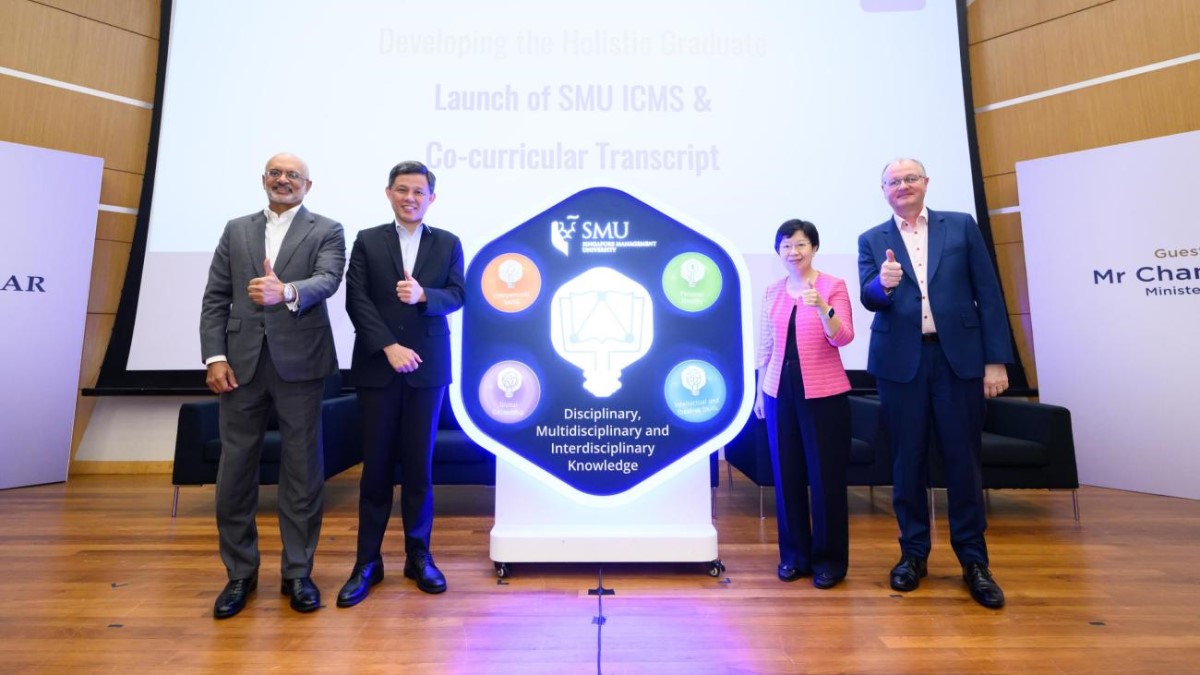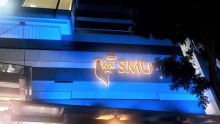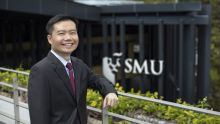Beyond Grades: Reimagining possibilities in the co-curricular space

The job market is evolving, and employers are now placing a greater emphasis on skills acquired outside of the traditional academic setting. As a result, it has become imperative for job seekers to equip themselves with a diverse range of proficiencies that extend beyond traditional academic achievements.
This message rang loud and clear at the recent employability symposium hosted by SMU on 6 April 2023. The symposium, aptly titled 'Beyond Grades: Reimagining possibilities in the co-curricular space', was a resounding success, drawing in more than 200 industry leaders, educators, and students, both physically and virtually. The event challenged attendees to embrace the vast opportunities available in the co-curricular space, which can help them stand out in a competitive job market.
The event featured a panel discussion chaired by SMU President Professor Lily Kong and comprised Education Minister Chan Chun Sing; SMU Chairman Piyush Gupta; Dr Michael Preston, Executive Director of Florida Consortium of Metropolitan Research Universities; and Melissa Aratani Kwee, Chief Catalyst and former Chief Executive of the National Volunteer and Philanthropy Centre.
“From its inception, SMU has been committed to grooming global-ready graduates through a holistic and transformative education,” SMU President Professor Lily Kong said in her opening address.
“The truth of the matter is that some truly valuable lessons also take place outside of the classroom. It is for this reason that SMU has encouraged students to engage in experiential learning from the very beginning.”
It is in displaying this same commitment that SMU announced the official launch of the ‘Integrated Co-curricular Management System’ (ICMS), and the co-curricular transcript. The ICMS acts as a dedicated online learning platform which allows students to document, and in so doing, chart their learning and personal growth, while the co-curricular transcript goes beyond a simple listing of activities that the student has participated in.
“This transcript offers insights into the skillsets that they would have developed in the process, and the extent to which they have developed these skillsets,” explains Prof Kong.
“This initiative is a first in Singapore and demonstrates SMU’s commitment to developing holistic graduates with career and life-ready skills.”
Honing talent who can develop a solution for tomorrow’s problems
According to Mr Gupta in his keynote address, the world is rapidly evolving, and change is happening at an unprecedented pace. It is no longer sufficient to possess only deep domain knowledge. Failing to recognise this fact may result in the hiring of individuals who are equipped with outdated solutions and strategies, which are no longer relevant in today's dynamic environment.
It is imperative that businesses and organizations remain agile and forward-thinking in their approach to hiring, or risk being left behind by the competition. With such rapid changes, Mr Gupta expressed that expertise in domains might well be made obsolete by advances in technology like AI, and that to stay relevant, it was important to be able to value add beyond pure technical expertise.
He added: “You want people with horizontal skillsets who, irrespective of what changes in the technology or domain, are able to adapt and respond.”
The ability to adapt to a rapidly changing landscape and connect the dots across different knowledge domains was once again emphasised by Mr Chan during the dialogue session.
For those considering applying for a job or a scholarship in the public service sector, it is crucial to understand that the rules of the game have changed, he shared. The Public Service Commission is no longer content with simply assessing technical qualifications and past experiences. They are now seeking individuals who possess a unique set of skills that extend beyond what can be found on a resume.
“We want people who can work with others to create new value propositions and think ahead,” said Mr Chan.
“We need people with diverse experiences to help us with the different data points to evolve faster, so we can beat the competition.”
Measuring co-curricular activities and reframing perspectives
As the discussion advanced towards how universities could help students develop the unique sets of qualities that many organisations were looking for, Ms Kwee cautioned against putting the onus solely on students.
“It’s not entirely wrong—we all have to be self-starters and make things happen,” she quipped.
“But I think one of the biggest societal challenges is figuring out how we reframe failure. We don’t learn unless we fail. Success and failure in life is not final. And I think part of what we need to do too, is to rethink the success and failure story.”
In discussing the co-curricular transcript, Mr Gupta and Ms Kwee both cautioned against the over-regimenting the co-curricular transcript and reducing it to just another item to check off on a to-do list was raised.
Drawing on his experience and research in the co-curricular career connections leadership model, Dr Preston introduced a different perspective on how the transcript could be useful.
“It’s not about the outcome or the measurement, or about the compulsory nature of it. It is about what the utility is to the students themselves,” he explained, going on to call SMU’s initiative an important first step in the way of measuring this utility.
“It helps for them to organise their thoughts and their understanding of what their outcomes in when they go in and start to make sense of the experiences that they’ve had.”


